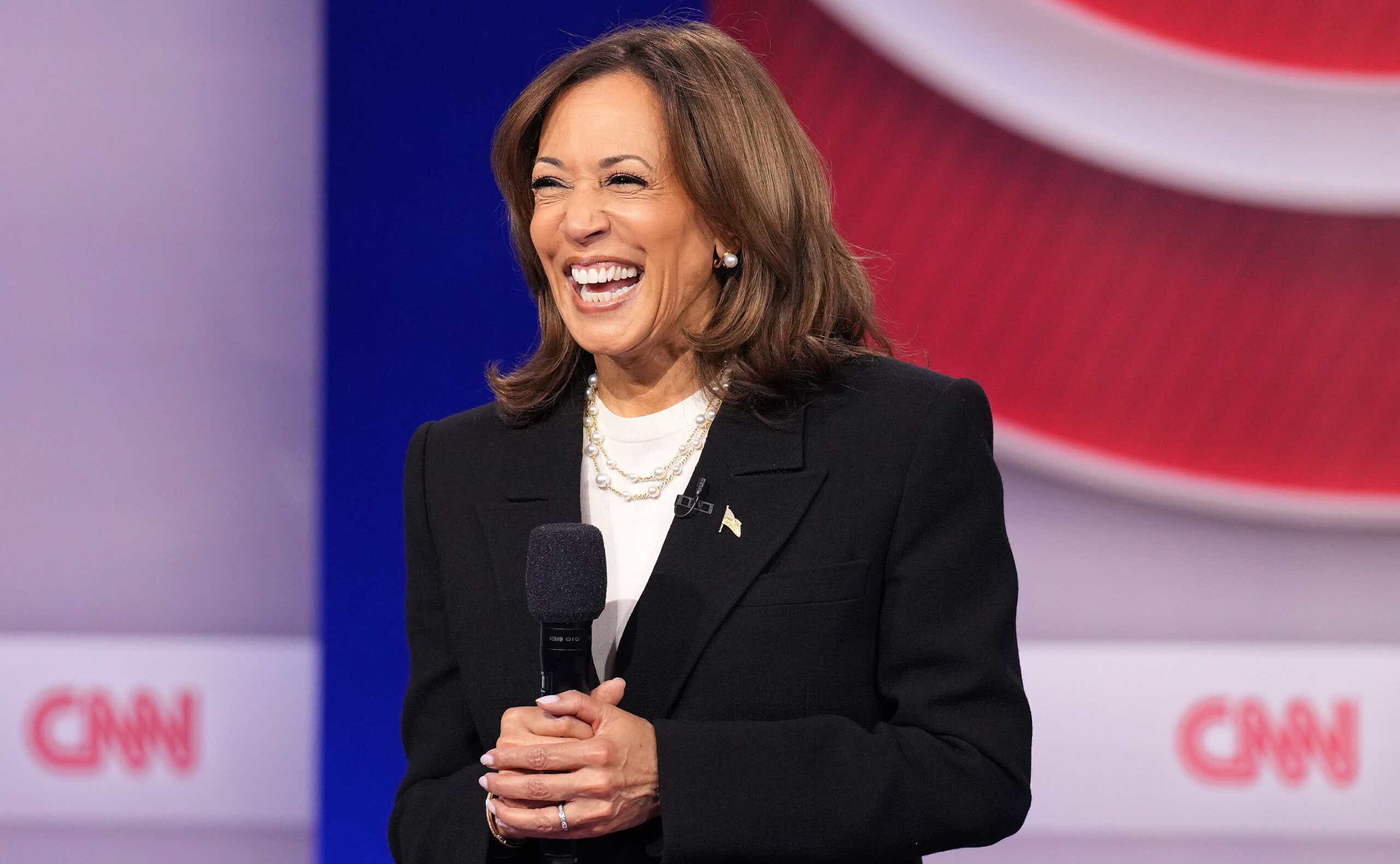Vice President Kamala Harris made her strongest case yet that Donald Trump is unfit to lead during last night's CNN town hall with Anderson Cooper.
Harris said Trump is "unstable," and that “he’s going to sit there, unstable and unhinged, plotting his revenge, plotting his retribution, creating an enemies list.”
Harris said she believes Donald Trump is a fascist
Asked whether she considers Trump a fascist — as his former White House chief of staff John Kelly recently asserted — Harris replied “Yes, I do.” She stressed that voters shouldn't rely on her opinion, pointing to the recent remarks from Kelly, as well as those from the former chairman of the Joint Chiefs of Staff, Gen. Mark Milley.
“I also believe that the people who know him best on this subject should be trusted,” she said.
Later on, when asked about the plight of those trapped under the Israeli bombardment in Gaza, Harris added: “For many people who care about this issue, they also care about bringing down the price of groceries. They also care about our democracy and not having a president of the United States who admires dictators and is a fascist.”
When Cooper asked Harris whether she'd be “more pro-Israel than Donald Trump,” she replied: “I believe that Donald Trump is dangerous.”
Harris again referred to the recent reports that he praised Adolf Hitler while in office, protesting: "As the president of the United States, the commander in chief, he’s saying to his generals, in essence, why can’t you be more like Hitler’s generals? Come on!"
Trump took to X and Truth Social, accusing Harris of "calling him" Adolf Hitler.
Harris did not actually call Trump Hitler. She did however say that the American people "deserve to have a president who encourages healthy debate, works across the aisle, [is] not afraid of good ideas, wherever they come from, but also maintains certain standards about how we think about the role and the responsibility and certainly not comparing oneself in a clearly admiring way to Hitler.”
Settling on a position regarding the border
When Cooper asked Harris whether she was in favor of constructing a wall along the U.S.- Mexico border — noting that the tabled bipartisan bill she supported had included funding for one — she replied: “I want to strengthen our border.”
She emphasized the limitations of executive orders, and repeatedly stressed the need for another such border security bill, reiterating "let's just fix the problem."
When reminded that she once mocked Donald Trump's push for a wall on the border, she responded: “I think of what he did and how he did it didn’t make much sense because he didn’t do much of anything.”
Trying to stand apart from the Biden administration
Harris seemed determined to distinguish her policy objectives from those of the Biden administration. Having previously struggled to reply when asked what she'd do differently, she seemed better prepared this time.
“My administration will not be a continuation of the Biden administration,” Harris said. “I bring to this role my own ideas and my own experience. I represent a new generation of leadership on a number of issues and believe that we have to actually take new approaches.”
She seemed to pivot back and forth on several occasions. When an audience member asked her to explain why she's shifted towards the center on issues like banning fracking, offering Medicare for All and decriminalizing border crossings, Harris replied that Americans deserve a leader who “works on getting stuff done, and that means compromise." She didn't elaborate on exactly how her policy positions have changed, or why.
The Israel-Hamas war
Harris had a difficult line to tread when it came to the continued bombardment of Gaza by Israeli forces. She attempted to maintain staunch support for Israel's right to defend itself while also courting the votes of Democrats who are resolutely opposed to the strikes on Gaza.
She said it was "unconscionable" how many Palestinian civilians have been killed, adding that the death of Hamas leader Yahya Sinwar offered a vital window of opportunity.
“With Sinwar’s death, I do believe we have an opportunity to end this war, bring the hostages home, bring relief to the Palestinian people and work toward a two-state solution, where Israel and the Palestinians – in equal measure – have security, where the Palestinian people have dignity, self determination and the safety they that they so rightly deserve,” she said.
The verdict?
The New York Times noted that Harris seemed more at home during her debate with Trump than taking to the stage solo:
"Without him standing nearby, her attacks on him appeared more like dodges of questions about her own plans than crisp responses about what she would do as president."
The Hill's writeup said Harris overly relied on "stump speech," leaning on comfortable touchpoints:
"Harris largely relied on her typical talking points during interviews and stump speeches when it came to issues like the Israel-Hamas war in Gaza, immigration, the economy, and how she would lead differently than President Biden, keeping her answers safe and avoiding making news when asked by voters on hot button topics."
And Fox News said Harris "stumbled through the Biden-Harris administration's border and immigration policies when pressed about the border crisis."









